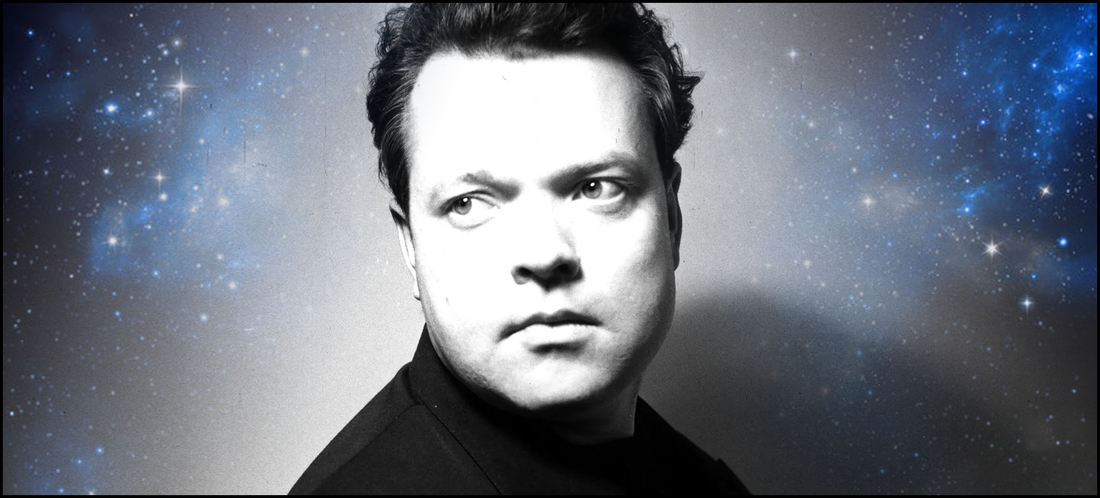Initially, I had wanted to study film -- perhaps in preparation for being a film critic or, more likely, a film historian -- so the motion picture that beckoned to all of us in those days was the 1941 Drama/Classic Citizen Kane. I had seen it a few times on television (this was well before the days of home video and streaming), and the professors in the media department often encouraged me to not only read up on it but also to write about the flick. At each opportunity -- whenever a media class involved crafting a termpaper as a requirement -- I'd come up with yet another angle with which to (you guessed it) read up and talk even more about what made this particular film so ground-breaking, so inspiring that it was still talked about and highly regarded some four decades later (at that time). I wrote about the cast. I wrote about the sound. I wrote about the film, its edits and dissolves. I wrote about its script. Most importantly, I wrote about its message ... but I won't bore the usual readers in this space as Kane is certainly no Science Fiction and Fantasy property.
I bring it up to make a point about Welles' wider reputation: why is it that he's not regarded as one of the greats of classic Science Fiction and Fantasy?
The answer is rather simple: no one around these days knows anything about his dalliances in these areas, and that's why I wanted to suggest that he's owed a measure of respect from fans.
Chiefly, most folks know of Welles' entry into genre properties by way of his participation in the radio adaptation of its day: H.G. Wells' The War Of The Worlds as part of the Radio Mercury Theatre on the Air on October 30, 1938. History reports (ahem) that the 'shocking' and 'alarming' broadcast created a national panic; listeners tuning in late may've been confused by the drama's structure, resembling a traditional news broadcast frequently interrupting a musical performance to hype (ahem) a 'developing news story,' namely the crash of a Martian spaceship on Earth. I threw in a few ahems (for those who noticed) because there's been some serious investigation into just how panicked this alleged 'national panic' truly was; suffice it to say, perhaps some newshounds of that day were making a mountain out of a mole hill? Strangers things have happened.
So, yes, Orson's direction of that Fantasy program definitely puts him on the genre map ... but the truth is I'd first come to know of his work in radio as the voice of Lamont Cranston -- aka The Shadow -- in that popular adventure show from yesterday. But I don't want to stray from The War Of The Worlds just yet ...
In fact, that War went on to win the 1939 Hugo Award for 'Best Dramatic Presentation.' Of course, securing a big win like that arguably was a breakthrough for any young artist of Welles' clout ... but did you know who his competition was in that same year?
Why, it was none other than Orson Welles himself!
As fate would have it, Welles was up for not one, not two, not three, but an incredible four nominations in that category. For the record:
- Welles and John Houseman were up for the writing and direction of the episode "Dracula" for the Mercury Theatre on the Air.
- Welles up for the writing and direction of yet one more Mercury Theatre on the Air production, this time his adaptation of Jules Verne's epic adventure "Around The World In Eighty Days." Granted, that may be a bit of a stretch to consider it Science Fiction or Fantasy, but many in high places have often suggested that it falls very close to Fantasy more than any other genre.
- Lastly, Welles served as the writer and director for The Campbell Playhouse radio adaptation of the Charles Dickens' holiday classic "A Christmas Carol," a work that definitely dabbles in the realms of the imagination if there ever were.
Did you catch that?
One year ... one record year ... and Orson Welles received four nominations for the Hugo Award in the seminal category of 'Best Dramatic Presentation.' He won for The War Of The Worlds. Some might argue that the deck was stacked in his favor, but I'd argue that's talent on full display.
So I ask again: why is it that he's not regarded as one of the greats of classic Science Fiction and Fantasy?
Food for thought ...
-- EZ


 RSS Feed
RSS Feed